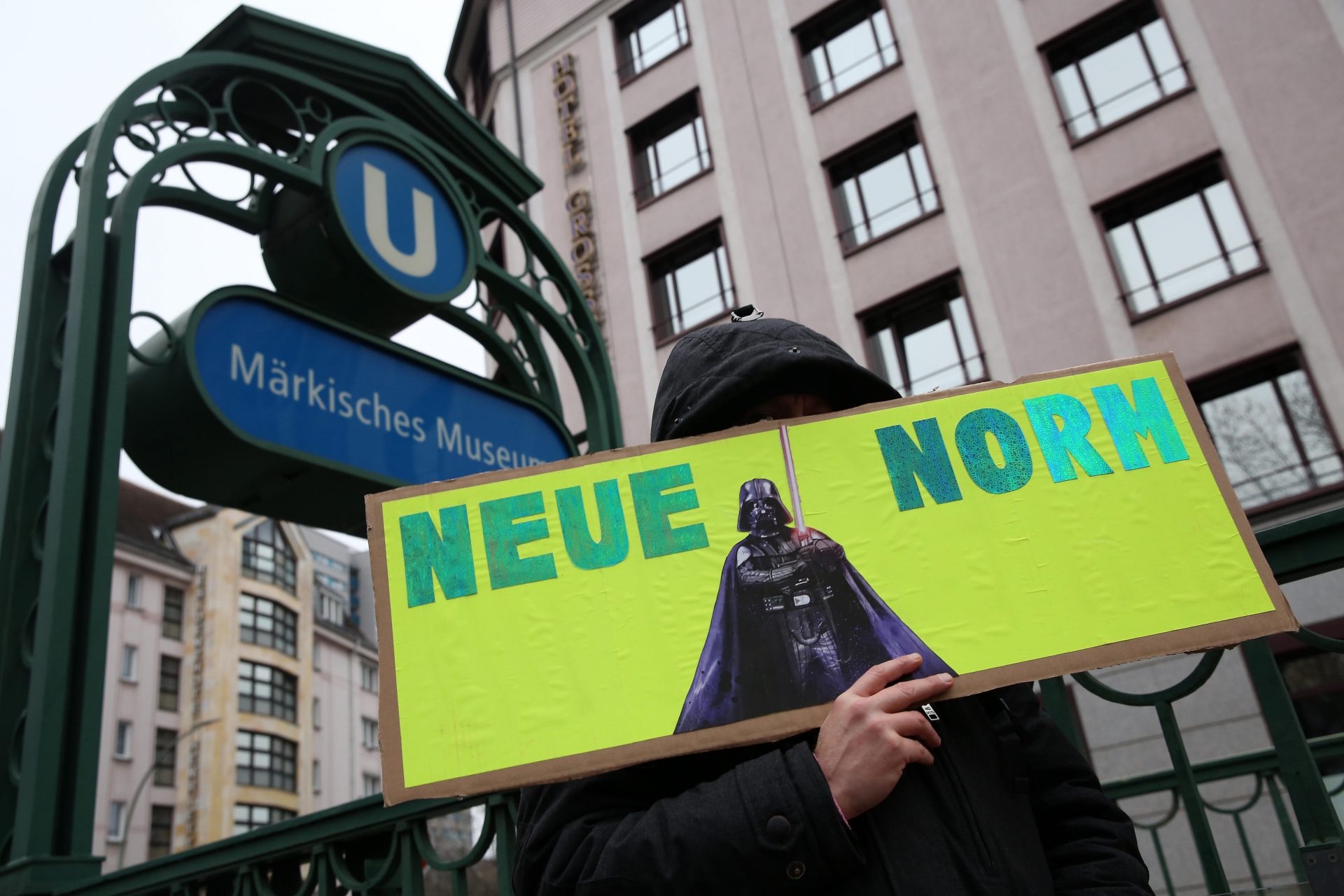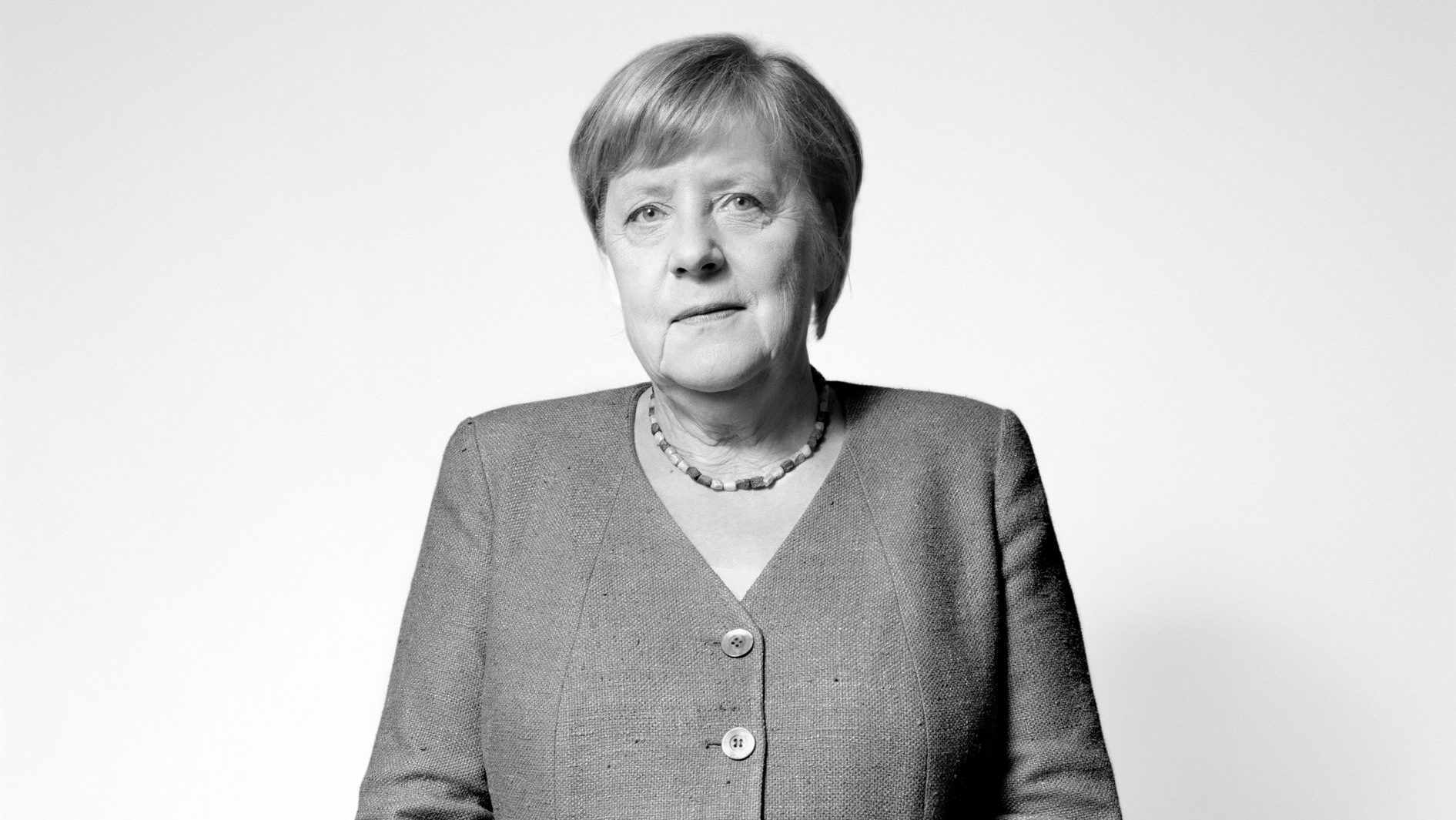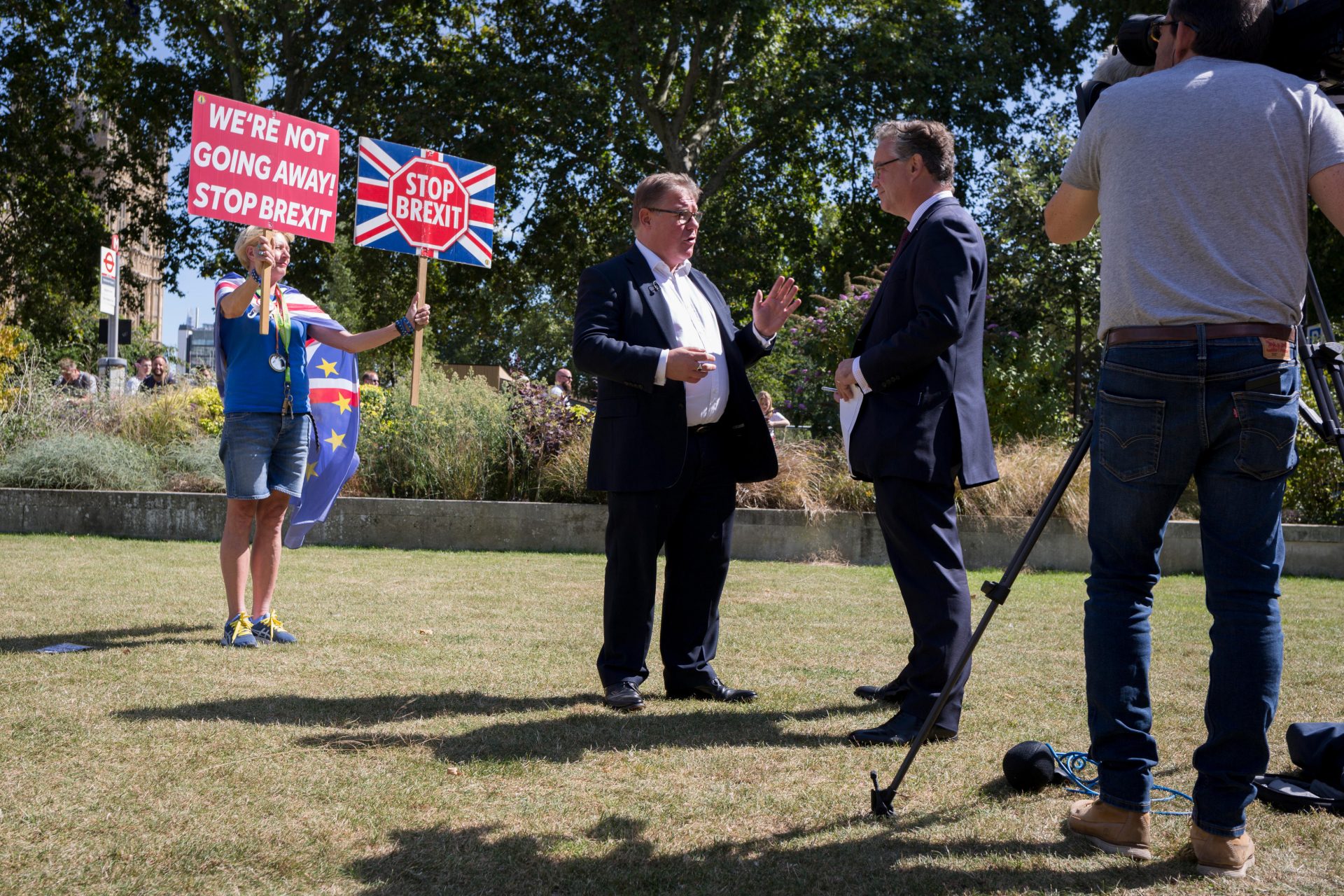I spent most of last week in Leipzig, Saxony. Sachsen has one of the highest Covid rates in Europe, nearly thrice the national German average. It also has the highest number of what we call Impfmuffel (non-vaccinated grumps): only 58 per cent of Saxonians have had both jabs, compared to 68 per cent of the general German population.
I’m not a danger seeker: Saxony is in semi-lockdown, it’s easy to keep a distance. Take the famous Auerbachs Keller, a tourist draw. In the mid-18th century, the tavern inspired Goethe to write his Faust and more importantly, he got hammered there as a student. Now the waiters outnumber the guests.
The city is roughly an hour south of Berlin by train. I hadn’t booked a seat, which saved me four Euros and I decided to squander them in the Bordbistro. Each table bore large red stickers with a QR code and a lot of text. I couldn’t read it because I sat opposite, facing the direction of travel (I generally like to see where I’m going. Control issues, I guess).
It took the waitress only seconds to tell me off: Must sit according to the sticker. It’s ze rule. Kein “ja, aber” (No “yes, but”) – change seat or leave the on-board restaurant!
I should mention we were only five people in the spacious compartment and we sat at the largest possible distance. But my friendly pleading was in vain so I left the Bordbistro rather than change seats. Matter of principle. Very German.
You see, the stereotype of German love for rules and regulations, which I regularly foster in this column, holds equally true for our love for principles. In regard to Covid, regulations and personal beliefs don’t always seem to match. Which could explain why German-speaking countries have significantly lower vaccination rates than Western Europe.
Scientists say there isn’t a clear-cut pattern that explains the anti-vaccine sentiment in parts of Austria, Switzerland and Germany. But there are a few things our three countries – or rather certain regions in these countries have in common. Take social geography: contrary to urban areas, people living in mountainous, rural regions have considered new administrative efforts or regulation an unnecessary intrusion and state imposition for centuries. The South of Germany, Saxony, Thuringia and the Swiss and Austrian Alps are rather hilly. Let’s call it the “Heidi-Phänomenon”, which can be fueled by religious pietism popular in the region.
Another reason could be a false sense of supremacy: the, by comparison, good healthcare system in our part of Europe (the Swiss one’s outstanding) could make Covid seem less of an imminent threat. Which is, of course, delusional: Germany may have the highest ratio of ICU capacities in the EU, but for weeks now the Luftwaffe has flown patients from Saxony to hospitals up North. ICU staff are exhausted, and – unlike last year – have to deal with unvaccinated Covid-patients who question the therapy and accuse them of cooking the statistics. On top of it all, three-quarters of so-called “plannable” surgery in Germany is currently postponed (a tumour surgery is, mostly, defined as plannable…). Good as they may be: our health care systems aren’t prepared for a pandemic beyond control.
There is also a correlation between low vaccination levels and AfD-strongholds. In the East of Germany, the refusal to get a Covid jab sometimes is a statement against the “Merkel-dictatorship” and has to do with a general distrust in the state, as we see in most Eastern European countries who have suffered through totalitarianism and (real) dictatorship. They have the lowest vaccination rates in Europe.
Polls do suggest a link between right wing populist voters and anti-vaccine sentiment, not just in easter and southern Germany but also Switzerland and Austria. A large number of the Querdenker (lateral thinkers) opposing Covid-vaccination, however, are anti-capitalist, have voted socialist, green and belong to esoteric anti-establishment groups.
Some historians trace their roots back to naturopathy: Stuttgart and Dresden were hotspots of vaccine scepticism as early as the 19th century, when the so-called life reform movement was started in the Southern German-speaking part of Europe. Organic nutrition (take Bircher Müsli), healthy living routines, nudism, anthroposophy, homoeopathy – promoted in books, magazines, at conferences – lived on, and later found political representation among environmentalist movements and parties.
Health insurance in France and the UK today doesn’t cover homoeopathic globules. In German-speaking countries, it sure does – because of high demand and despite scientific proof that the white pillules have a placebo effect at most. In Switzerland, it was a referendum that forced them to.
In an extreme version, this alternative-reactionary lifestyle promotes the principle that diseases are a means of self-cleansing, that kids should rather get the measles than a jab because nothing should poison our bodies, particularly not Bill Gates. The (even) wackier members of the un-vaccinated groups even compare themselves to Jews having to wear the Yellow Star.
Austria, where some areas have more Covid cases than Spain and Portugal combined, has already announced compulsory vaccination from 2022 on. In Germany, an exceeding number of politicians demand the same – which worries me, because leading politicians across all democratic parties have promised otherwise for a year. If this promise isn’t kept, the damage to political credibility may be higher than the benefit in vaccination rates (no one will be force-jabbed anyway).
This hasn’t been the last time Covid-column, I’m afraid – but once this is all over, and it will be, do visit Auerbachs Keller and order Roulades (thin, rolled beef slides with a bacon-pickle stuffing) with red cabbage and Knödel. It’s the best booster Saxony has to offer.




